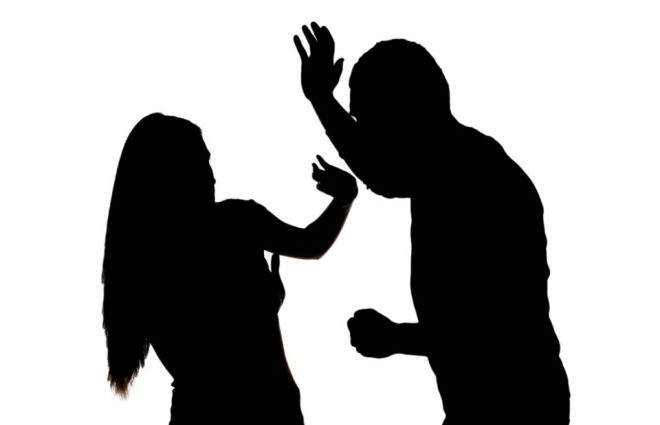Family is the smallest unit where humans interact and engage. It consists of a household with different personalities and our engagement at the micro level determines the society we intricately yet unknowingly build at the macro level.
Many of us react vehemently to societal inequality played in public glare but conveniently ignore it at the familial front. While the world has been distraught, combatting a pandemic like Covid-19 since past few months, something unlikely is also making headlines during this time. It is the alarming rise in cases of domestic violence against women.
A news report recently published in The Guardian suggested that during the Covid-19 lockdown 15 million more cases of domestic violence against women is expected to be reported in 2020. There were media reports of surge in calls at National Domestic Abuse helpline by 25 percent in UK. Surely enough, it passed unnoticed or created a little murmur in close quarters. Such a reaction from society at large shows the tacit acceptance, approval, and perpetration of violence in the name of familial discord.
Abuse of females whether physical or emotional seems to be an accepted norm in our society and sadly it cuts across cultures, economic strata, communities, races, and geographical boundaries. Imagine living at a place that should provide ultimate safety to an individual turning as the hub of physical and emotional abuse. The society implicitly accepts sweeping powers of males over their counterparts. Yes there are helplines to register domestic violence complaints in most developed cities across the world, but sadly they do not offer a holistic solution to the problem. Not to forget less developed and remote areas of the world where patriarchy is more dominant. The cases of abuse in such places are not even reported. Needless to say, the cause of such oppressions lies within the social structure and from there should the solution emerge.
Ever considered why as parents we implicitly endorse unfair behavior when our son pulls the daughter’s hair saying, ‘it’s okay, boys do that’? When our son reaches teenage our conversation becomes more cautious and we are a little afraid to hurt his sentiments. By the time he is a full-grown adult it is highly acceptable that he would not explain when and where he is going, who his friends are, and whether his conducts are scrupulous or otherwise, lest the male ego would be hurt. Contrary to that, as our little princess reaches adolescence, we tend to become more protective and restrictive as she might fall in harm’s way. Keeping her in a virtual fairyland and implicitly ignoring rash and unproportioned rights and liberties of her brother we have already set the tone for an unequal society where the two branches of a tree are not destined to equally receive the rays of abundant sunshine.
A few months ago talking to a dear friend I got to know that her brothers continuously joked about her idea of pursuing a career in journalism, when she was trying to set her life goals as a teen. I am still wondering how a conviction that strong could become a joke for another, and why was it not stopped by the family elders? I received a similar shock from my elder brother when he suggested that I should not pursue a career in law, because generally people (society at large) believed such a female would be very assertive of her rights. So, what was wrong in that assertion? It says a lot about what we want our female counterparts to be. Many would unquestionably argue that such thought processes are archaic in 2020.
Partly so, because twenty years later women have more rights to explore dynamic career opportunities. But when it comes to the household and social dynamics, the picture is still gloomy at large. While women are taking up challenging jobs in diversified fields, they still have to discharge the daily duties of managing and running the household, which also includes raising children. If financial dependence was the only reason for domestic violence in earlier decades, then it would still not have been happening in the most developed nations where working women are a norm. According to a report of the United Nations Office on Drugs and Crime, some 87,000 women and girls were murdered worldwide in 2017. Of the total number, 30,000 females were killed by spouse or intimate partners and 20, 000 met the same fate in the hands of their other family members.
Isn’t it highly acceptable in our society that a woman would receive unfair treatment from her in-laws, while marriages end when the same favor is returned to her male counterpart? Until now emotional stress and scar that a woman is subjected to by the very family and surname she embraces is never counted. It is primarily because the society endorses and upholds it without qualms. Emotional wounds are lifelong and corrosive enough to distort a personality.
Physical violence is part of the picture that is uglier than the other systemic subjugation that sadly a woman goes through her life. Essentially, life and dignity of every individual should matter, but unfortunately for women it grabs momentary attention only when a gruesome incident happens and is followed by hashtags. Suddenly emotions swell up and people vent their opinions as if the wave of the emotional tsunami would erode the age long inequality within and level the society for ever. The next morning the hashtag trends change their course for another immediate cause, and instead bury it under another layer of quagmire. Sadly, there is no time to delve deep and the society remains intrinsically unequal at large.

